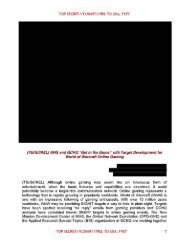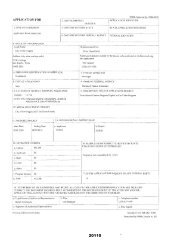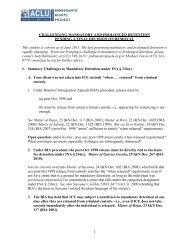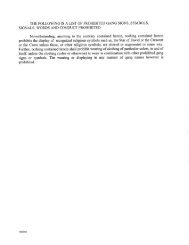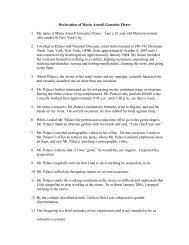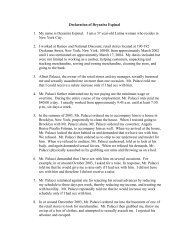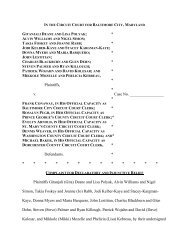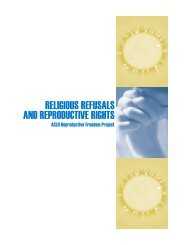NO. AP-75,363 IN THE COURT OF CRIMINAL APPEALS OF TEXAS ...
NO. AP-75,363 IN THE COURT OF CRIMINAL APPEALS OF TEXAS ...
NO. AP-75,363 IN THE COURT OF CRIMINAL APPEALS OF TEXAS ...
Create successful ePaper yourself
Turn your PDF publications into a flip-book with our unique Google optimized e-Paper software.
31<br />
and 1960's. Many of the witnesses who knew the most about Soffar’s life, including his<br />
mother, had died by the time of the retrial, (2 CR 500, 531-34), and the court precluded<br />
introduction of their affidavits into evidence. (40 RR 64-65). The few defense witnesses<br />
available to testify were subject to prosecution attacks on their ability to recall decades-old<br />
events. (38 RR 82-85; 39 RR 41-43, 47-48).<br />
Doctors noted at birth hard neurological signs of brain dysfunction and damage,<br />
including an abnormal palate and facial asymmetry. (39 RR 114-15). Soffar was adopted<br />
by older parents who ran a business and did not have the wherewithal or time to care for<br />
him. (36 RR 96; 38 RR 150; 39 RR 139, 233). As an infant, he was irritable and agitated.<br />
(39 RR 119-20). Incompetent as a parent, his mother put phenobarbital, a barbiturate and<br />
central nervous system depressant, in his bottle. Id. Soffar’s father was a heavy drinker,<br />
addicted to sleeping pills, and was mostly absent from his life. (38 RR 25-26, 31-32; 39<br />
RR 140, 169-170). A relative of Soffar’s father noted that the Soffar family home lacked<br />
any discipline. (38 RR 20-21). Soffar’s juvenile probation officer, who had known the<br />
Soffar family for years, believed that his parents were unable to provide the discipline and<br />
32<br />
structure that he desperately needed. (36 RR 95-96).<br />
Soffar began ingesting dangerous substances at a young age. He sniffed modeling<br />
glue and leaded gasoline, and took his mother’s blood pressure pills and anything else he<br />
31<br />
Citing various legal arguments, the defense unsuccessfully moved to preclude the death penalty due to the<br />
inherent unfairness in forcing Appellant to defend against the death penalty 26 years after the alleged capital crime.<br />
(2 CR 499-718). See also Appellant’s Sixth Point of Error and Twenty-Second Point of Error (in proffer brief).<br />
32<br />
The probation officer came to the conclusion that young Max could not help his behavior. (36 RR 97).<br />
20



